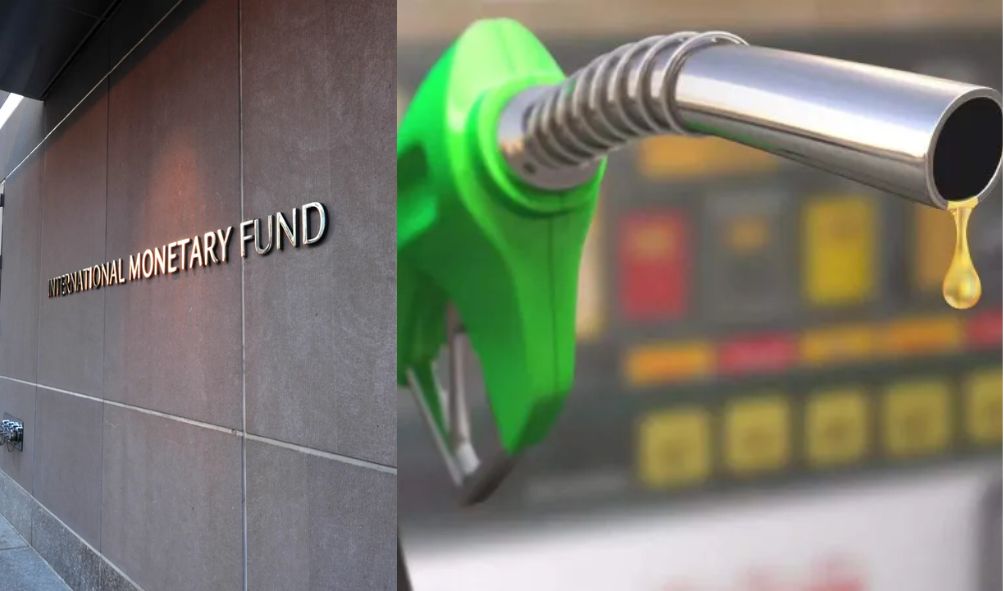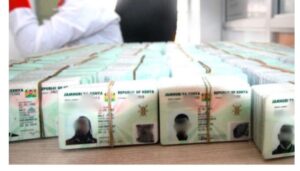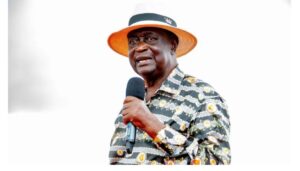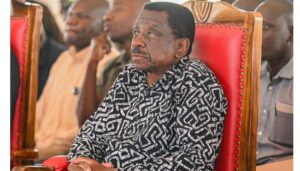IMF ‘forces’ Kenya to ditch gulf fuel import plan

IMF advices the Kenyan government to step back from the Gulf fuel import scheme over exposure to currency-related costs
IMF advices the Kenyan government to step back from the Gulf fuel import scheme over exposure to currency-related costs.
After the International Monetary Fund (IMF) voiced concerns that taxpayers would be exposed to currency-related charges, Kenya will withdraw from the government-backed fuel import credit system established with gulf countries.
Njuguna Ndung’u, the Treasury Cabinet Secretary, stated that the government will take a back seat to let banks, credit insurance firms, and oil marketing companies (OMCs) to operate the program.
However, according to Prof. Ndung’u, the government informed IMF staff who visited Kenya to examine credit and funding facilities that the plan was a trade finance agreement with no risks to the Kenyan government.
“There is no end game to this (review) because what we will do is that the government will step back and allow the market to work on its own, with those deferred LCs (letters of credit),” Prof Ndungú said, even as he maintained that the government has not been an active participant in the scheme.
“We have gone into several cycles until they (IMF staff) have understood,” said Prof Ndung’u when asked about the review of the gulf fuel credit scheme that is due in December.
The plan, put together by the Kenyan government in collaboration with the governments of Saudi Arabia and the United Arab Emirates, aims to relieve forex pressures by preventing the purchase of fuel, the nation’s single-largest import, on the spot market by delaying the demand for dollars, which is estimated to be $500 million per month.
In accordance with the arrangement, the Treasury issues comfort letters to exporters and regional banks for fuel purchases made by certain oil importers from the governments of Saudi Arabia and the United Arab Emirates. These letters offer some guarantee that a commitment will finally be honored.
The IMF believes the government is exposed should foreign exchange (FX) fluctuate, notwithstanding the Treasury’s insistence that such letters of comfort cannot amount to government guarantees of private debt.
“After the initial rollout period, staff advised that the import scheme should be reconfigured so that all risks are borne by the private sector,” said the IMF.
According to the IMF, the government is exposed to calls on the national budget should fuel prices at the pump not be adjusted to fully pass through any forex valuation losses to final consumers and to provide access to dollars to cover any potential shortage of foreign currencies in the domestic market.
“Similarly, to reduce risks to the budget, changes in the mechanism for setting pump prices should ensure that fuel price decisions are always aligned with budgeted resources,” added the IMF.
Raila should be treated like Donald Trump, UDA
Why Ruto can’t go after Uhuru billions, Economist David Ndii
‘Mathe Wa Ngara’ calls suspect in police custody over recovered 13M and drugs
Uhuru-Raila secret meeting in UK?
In mid-September, Kenya will be making the first payment for the April consignment, with Prof Ndung’u noting that several vital lessons have been picked up so far.
The IMF says the total amount of outstanding obligations of oil marketing companies to fuel exporters will peak at six months of fuel imports and will then roll over as the first received cargo is settled and a new one is received.
“Based on April 2023 prices, the total obligation incurred is estimated at around $700 million per month for a total of over $4 billion by the end of September 2023,” the IMF said.
Prof Ndung’u told journalists on the sidelines of the launch of the budget-making process for the financial year 2024/25 that the government was not incurring any costs but creating safeguards to make sure that the market works.
“Government comes in to de-risk any form of activity, but because we wanted to make sure that we were dealing with the governments themselves this is why a G-to-G [government-to-government] was a preferred mode,” he said.
“The IMF has realized the same. But when they come in we will get together to see how we will allow the market to work because we still have to watch how the market is working.”
Prof Ndungu insisted that the arrangement has had the desired impact in the foreign exchange market as there is a mad rush for dollars by OMCs every month.
Also read,
Ruto won August polls fair and square; Raila’s closet ally Simba Arati
Haiti gang leader warns Kenyan police after deployment
Uhuru technical advisor launches attack on Raila after switching allegiance to Ruto
Kenya-South Sudan secures fiber optic cable linking Eldoret-Juba
Follow us






